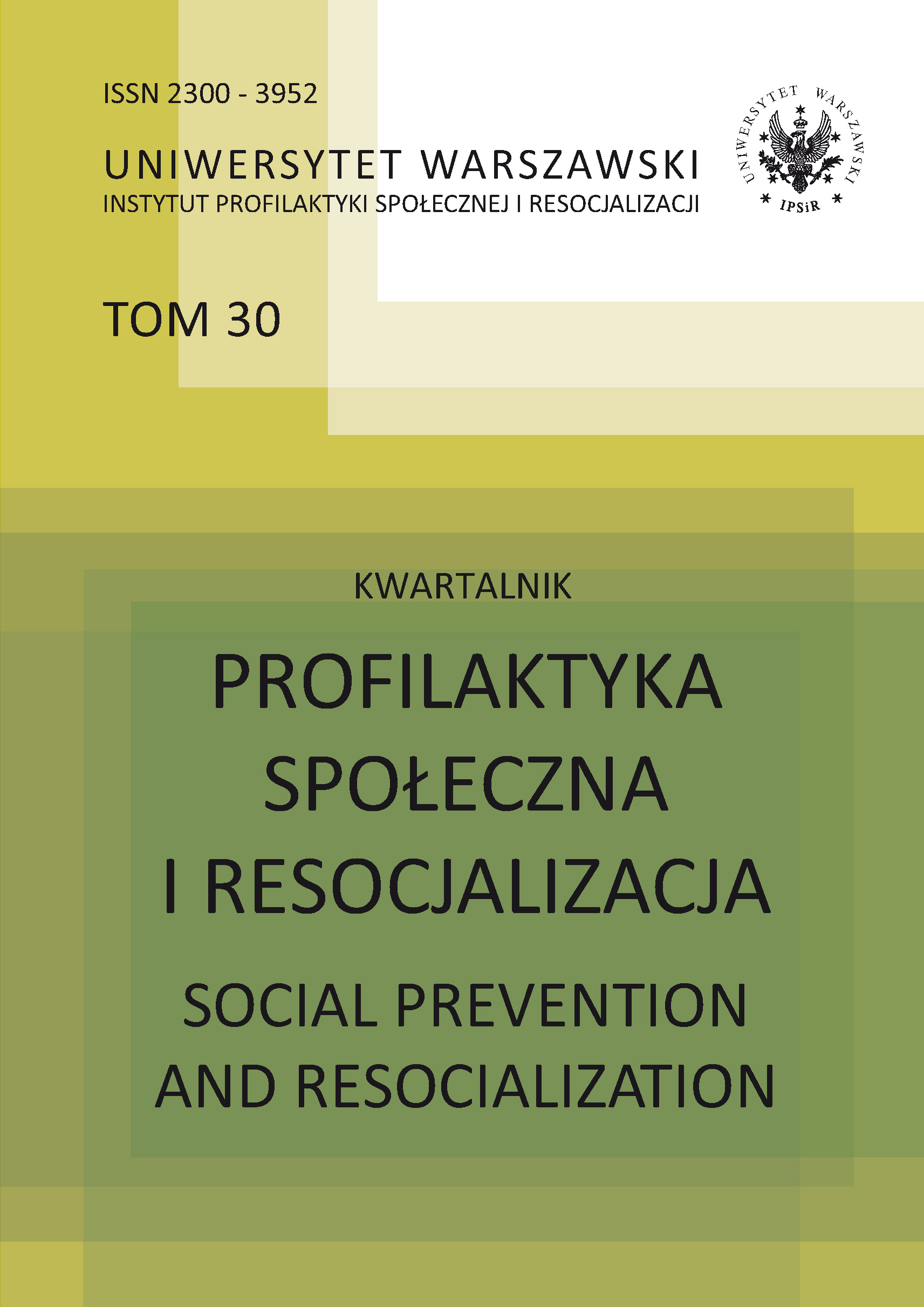„Uwolnij się”- grupa wsparcia dla ofiar przemocy w rodzinie: Prezentacja i ewaluacja programu realizowanego w warunkach izolacji więziennej.
“Free Yourself”- support group for victims of domestic violence: Presentation and evaluation of the program implemented in prison setting.
Author(s): Katarzyna Fenik-Gaberle, Renata Kałucka, Sebastian LizińczykSubject(s): Family and social welfare
Published by: Instytut Profilaktyki Społecznej i Resocjalizacji UW
Keywords: violence; victims of violence; work on past violent experiences in penitentiary isolation
Summary/Abstract: According to the Prison Service’s statistics there are approximately 70 thousand individuals detained in Polish prisons, including 5% of female convicts. However, before com- mitting the criminal offence, a number of detained women had been confronted with violence issues (victim role). For many, the offence came as a form of extremely unconstructive strategy of dealing with prolonged stress. The paper attempts at analyzing possible strategies of working with such individuals, i.e. female convicts who had suffered domestic violence before they became criminal offenders and were sentenced to imprisonment. The analysis of Polish writings reveals that although a bulk of research and analyses on violence has been conducted in Poland, it is still very hard to find guidelines, recommendations and specific group session scenarios addressing the needs of those violence victims. As a form of assistance to detainees, the authors have developed the “Free Yourself” program, comprised of a comprehensive diagnostic component (to study the circumstances where violence was experienced) and the group support component. The overarching aim of the program is to educate prisoners in self-diagnosis and in recognizing violence patterns, to teach them constructive ways of addressing the issue and to show them where to look for help. The paper presents the program which was also assessed with dedicated research tools. The statistical analysis confirmed the positive influence of group sessions on participants’ more realistic understanding of violence and their ability to identify remedial strategies. Results discussed below highlight this tendency, while positive feedback from participants complete the picture and confirm that program graduates felt that it was a useful experience. Our results show that imprisonment period itself may be sufficient to encourage participants (victims of violence) to work towards changes in their way of thinking about themselves and their future. These results prove that such programs should be more widespread and that intervention does not have to take place in prison setting. They are even more optimistic as they do not concern the therapy but some easier and more economical measures which can be easily implemented on a wider scale and in various settings.
Journal: Profilaktyka Społeczna i Resocjalizacja
- Issue Year: 2017
- Issue No: 33-34
- Page Range: 55-82
- Page Count: 28
- Language: Polish

